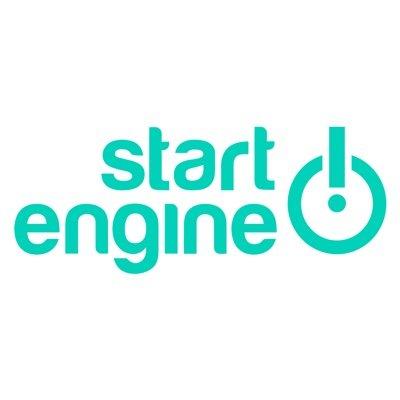Invest in single-family homes
Invest in startups in exchange for equity or debt
Investments
$56,000
The minimum investment on Doorvest is a 25% down payment on a home, averaging $56,250 based on the average home price of $225,000.
Investments
$250
The minimum investment on StartEngine typically starts from $250, with the average being around $500.
Moderate Risk
3/5
Investing with Doorvest involves risks such as market volatility, economic changes, and property-specific issues. While the platform aims to manage these effectively, outcomes can be uncertain, and investors should carefully consider their risk tolerance and conduct due diligence before investing.
High Risk
4/5
Investing on StartEngine carries risks including market volatility, liquidity challenges, regulatory changes, the high likelihood of company failure, dilution of shares, limited company information, and the absence of guaranteed returns.
Minimum Liquidity
1/5
Doorvest allows investors to sell their homes back to the platform, requiring them to connect with a client partner for more information on the process.
Minimum Liquidity
1/5
Liquidity on StartEngine Secondary varies due to its nature as a peer-to-peer trading platform with specific eligibility criteria and trading hours. Initially limited to companies that have raised on StartEngine, the platform's liquidity is influenced by the availability of securities and the matching of buy and sell orders within designated market hours.
Receive new reviews from Fintorial
High Return
18 %
Doorvest reports an average annual investment return of 18%, accounting for rental income, property appreciation, and mortgage leveraging.
Not Predictable Return
N/P
Potential returns on investments are uncertain and vary. StartEngine's role ends after a company's capital raising concludes, leaving it without control or insight into post-offering investment activities.
Long-term Investment
5-30 years
Doorvest focuses on long-term investments in single-family rentals, generally suggesting a commitment of several years to decades, based on real estate appreciation and rental income.
Long-term Investment
5+ years
Investments through StartEngine typically have a long-term horizon, often requiring several years to potentially yield returns due to the early-stage nature of the companies.
Who can invest
United States
To invest with Doorvest, you need to be in the U.S. or able to sign documents at a U.S. Embassy.
Who can invest
International
StartEngine allows anyone over 18 to invest. However, due to regulatory concerns, StartEngine does not currently accept investments from residents of the UK or Canada.
Moderate Volatility
3/5
Real estate assets on Doorvest can experience volatility due to economic shifts, interest rate changes, and local market trends, potentially affecting investment values and posing risks for short-term investors.
Moderate Volatility
3/5
Assets on StartEngine, mainly shares in startups and early-stage companies, exhibit high volatility due to uncertain revenues, evolving business models, and market sensitivity.
Regulation and audits
TREC Regulated
Doorvest complies with the Texas Real Estate Commission (TREC) consumer protection notice, indicating adherence to state-level real estate transaction standards. It does not provide details on broader financial regulations or audits, focusing more on real estate industry compliance than securities regulation.
Regulation and audits
SEC Regulated
StartEngine operates under strict regulatory oversight by the SEC and FINRA, ensuring adherence to investor protection and market integrity rules.
Insurance
Yes
Doorvest protects rental investments with homeowner's insurance, covering physical structure damage and potentially extending to personal belongings and medical expenses. This coverage is a mortgage lender requirement, safeguarding against various damages, though investors should be aware of any coverage limitations.
Insurance
Yes
StartEngine's memberships with FINRA and SIPC signify its commitment to investor protection, with SIPC offering insurance against the loss of cash and securities if a broker-dealer goes bankrupt. However, it doesn't cover market loss.
Payouts
Rental Income
Doorvest offers rental income as returns to investors, bolstered by a Rent Guarantee that includes vacancy and non-payment protection for the first three months, with an option to extend up to 12 months. Additionally, a Renovation Guarantee covers repair costs for the first year of ownership.
Payouts
No Recurring Payouts
Dividends on StartEngine depend on the individual company's policy and investment terms, with startups often reinvesting profits to fuel growth rather than distributing dividends.
Withdrawals
To get their money back, Doorvest investors need to sell their property, with the timeline depending on market conditions and the sale process. The process is initiated through Doorvest, and funds are received after the property is sold and the transaction is completed.
Withdrawals
Investors can withdraw available funds from their StartEngine Investment Account after a 10-day waiting period from the initial transfer, subject to providing additional information for security if needed.
Extra Fees
Yes
Doorvest employs a fee model, deriving revenue from a portion of the monthly rental income and margins on home sales, always at fair market value.
Extra Fees
Yes
Investors may encounter a 3.5% processing fee on investments, depending on the company's choice. Wire transfers could have additional bank fees, while ACH and credit card investments don't have extra fees beyond the 3.5% if applicable. Trading on StartEngine Secondary is free for buying, but selling shares includes a 5% transaction fee.
Taxes
Tax Form
Doorvest facilitates tax compliance by providing investors with all necessary documentation for tax filing, related to real estate investment income and expenses.
Taxes
Annual Statement
Investors must procure the necessary tax documents directly from the entities in which they have invested, since StartEngine does not distribute tax forms.

